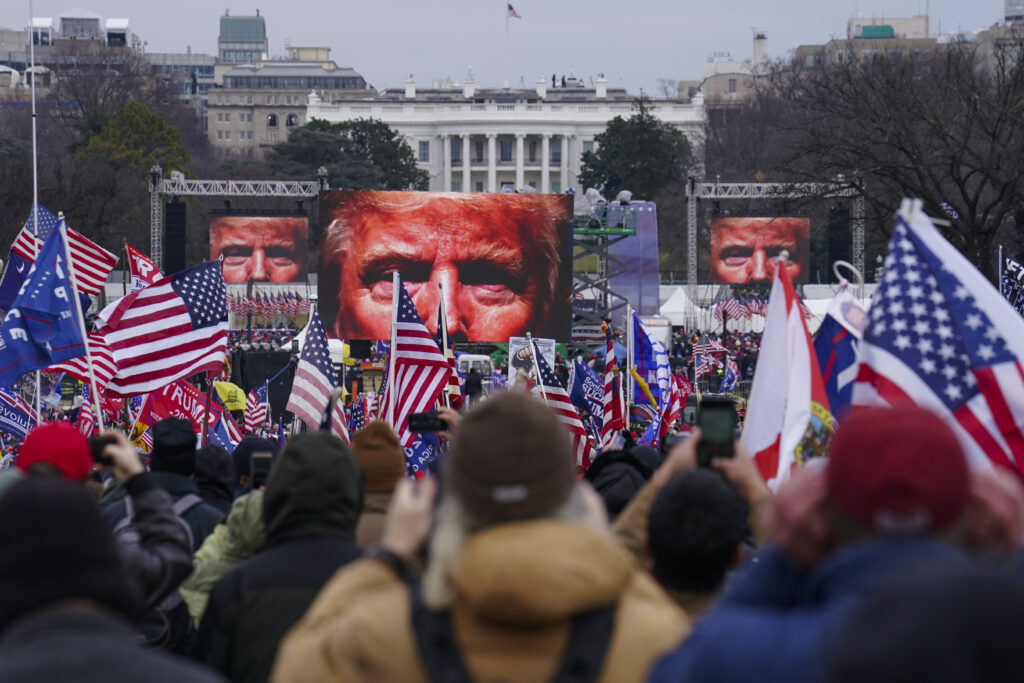A Reason for Optimism
Americans have forgotten why they dislike Trump, but they'll soon remember.
We’re eight months from the presidential election, and it’s understandable that many of us don’t feel terribly upbeat. Trump is on the ballot again, and his supporters—including those at the commanding heights of the far-right’s institutions—have made clear that, should he retake the White House, they will use the lessons they learned the first time around to ensure his power is closer to absolute, his agenda more forcibly pursued, and American democracy more surgically targeted.
In other words, if he wins in November, he will seek to remake America in the image of what is arguably a fascist ethos, and he’ll have quite a lot of help.
So why optimism?
Today the New York Times published an article about Americans’ hazy memories of the Trump years. Here’s a gift link to it to get you around the paywall:
We’ve all seen the polls of Trump slightly ahead of Biden, which, given the above assessment of what his second term would look like, is rather scary. But, as the Time article reports, most Americans have forgotten about (or suppressed) much of what made his first term so bad—and, importantly, what it was like to live through it. And that’s interacting with a long-standing tradition of judging presidents more favorably in retrospect:
It’s common for Americans to look back fondly on ex-presidents. A Gallup analysis in June found 46 percent of adults approved of Mr. Trump’s handling of his presidency, based on what they “heard or remembered.” Mr. Trump’s approval rating when he left office was 34 percent.
Americans have been living with Biden for three years, so he’s fresh in their minds, and so are the things (fairly or unfairly) they dislike about his administration and the American economy and society he’s the guy they see as responsible for. (Voters typically widely overestimate how much we can give the president credit or blame for, but that’s a different matter.)
As weird as it is to think that people could forget anything about the chaos of American political life during Trump’s first term, it’s weird because, if you are the kind of person who subscribes to a newsletter like this one—and I say this with love—you are weird. You pay far more attention to politics than the majority of your fellow citizens, who often pay effectively no attention at all. They’re what we call rationally ignorant of public policy and the political scene. Because they, individually, have little or no influence on what happens in American politics, and because following politics and knowing a lot about it takes time and energy they could be putting to more productive pursuits, they just don’t pay much attention. Those of us who do pay attention are giving politics that time and energy either because we personally gain from it (to earn my living, I have to pay attention to political issues) or because we find it engaging (fun, enraging in a can’t-look-away way, etc.).
While you’ve been watching those polls, and have seen clips of Trump sounding incoherent at rallies, most people haven’t. If they do occasionally watch the evening news, it’s much more likely to mention Biden than it is his November 2024 opponent, because Biden is president and Trump is not.
But if there is a time voters, as a broader class, pay attention to politics, it’s in the few months before a presidential election, when media is wall-to-wall coverage of the candidates. And we’re not there yet.
That’s why I’m optimistic.
Voters rejected Trump in 2020 in large part because they were sick of him. And the reasons they got sick of him are still around, even if they’ve softened in memory. When they start paying attention, they’ll remember. From that Times article:
Professional Democrats, who have watched Mr. Trump eclipse Mr. Biden in public and private polling, continue to believe the former president isn’t as strong as the surveys indicate. They argue that if they inform enough people about Mr. Trump’s record in office that voters skeptical about Mr. Biden will vote for him anyway.
If anything, by the time that media coverage ramps up after the conventions, those reasons will be more acute. The far-right’s culture war positions are unpopular, particularly among the suburban voters who swung against Trump in 2020. For example, if you’re in a right-wing bubble at the moment, you’re probably convinced one of the most pressing issues is the rise of “Diversity, Equity, and Inclusion” programs within businesses, and further convinced that most people view these as not just unhelpful, but as a form of anti-white racism. However, outside of those bubbles, Americans are much more sanguine about DEI.

The same holds for the anti-trans crusade, LGBTQ book bans in schools, and the wretched Moms for Liberty groups that temporarily gained some power in primary and secondary education.
These are all unpopular right-wing hobby horses central to Trump’s current campaign rhetoric—when he isn’t complaining about how the 2020 election was stolen from him. Far-right grievance politics plays poorly with most Americans, and far-right grievance politics is really all the GOP has to talk about at this point.
That’s before we even get to the matter of abortion rights, which have been upheld or reinforced by voters every time they’ve been on the ballot since the Dobbs decision. Come the fall, television will be overflowing with Democratic campaign ads about this, noting that the right will almost certainly push for a national abortion ban if they retake power. Basically no one, outside of a small cadre of religious extremists, wants that.
What that all adds up to is this: If Americans did remember Trump well, and the polls showed support, we’d be in trouble. But the polls show support because they don’t remember him. And we’re still too early in the election cycle for many Americans to have much reason to refresh their memory.
But we’ll get there.


Join the conversation